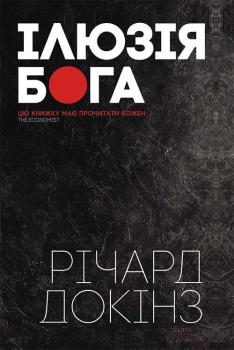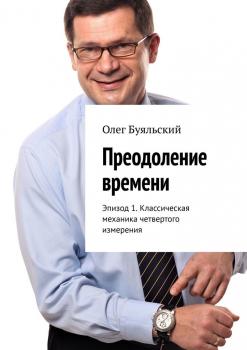ТОП просматриваемых книг сайта:















Философия
Различные книги в жанре Философия, доступные для чтения и скачиванияАннотация
Carole Pateman is one of the leading political theorists writing today. This wide-ranging volume brings together for the first time a selection of her work on democratic theory and her feminist critique of mainstream political theory. The volume includes substantial discussions on questions of democracy and citizenship, including the construction of the concept of the political and complex, but largely unrecognized, problems surrounding women's participation and consent, and their relation to the social contract tradition. This work should be of interest to students and researchers in political theory, women's studies and sociology.
Аннотация
A timely and accessible guide to 100 of the most infamous logical fallacies in Western philosophy, helping readers avoid and detect false assumptions and faulty reasoning You’ll love this book or you’ll hate it. So, you’re either with us or against us. And if you’re against us then you hate books. No true intellectual would hate this book. Ever decide to avoid a restaurant because of one bad meal? Choose a product because a celebrity endorsed it? Or ignore what a politician says because she’s not a member of your party? For as long as people have been discussing, conversing, persuading, advocating, proselytizing, pontificating, or otherwise stating their case, their arguments have been vulnerable to false assumptions and faulty reasoning. Drawing upon a long history of logical falsehoods and philosophical flubs, Bad Arguments demonstrates how misguided arguments come to be, and what we can do to detect them in the rhetoric of others and avoid using them ourselves. Fallacies—or conclusions that don’t follow from their premise—are at the root of most bad arguments, but it can be easy to stumble into a fallacy without realizing it. In this clear and concise guide to good arguments gone bad, Robert Arp, Steven Barbone, and Michael Bruce take readers through 100 of the most infamous fallacies in Western philosophy, identifying the most common missteps, pitfalls, and dead-ends of arguments gone awry. Whether an instance of sunk costs, is ought, affirming the consequent, moving the goal post, begging the question, or the ever-popular slippery slope, each fallacy engages with examples drawn from contemporary politics, economics, media, and popular culture. Further diagrams and tables supplement entries and contextualize common errors in logical reasoning. At a time in our world when it is crucial to be able to identify and challenge rhetorical half-truths, this bookhelps readers to better understand flawed argumentation and develop logical literacy. Unrivaled in its breadth of coverage and a worthy companion to its sister volume Just the Arguments (2011), Bad Arguments is an essential tool for undergraduate students and general readers looking to hone their critical thinking and rhetorical skills.
Аннотация
Now in its third anniversary edition, world-renowned philosopher Anthony Kenny’s highly acclaimed survey of Western philosophy has been updated to provide essential coverage of contemporary Anglophone analytic and continental philosophy, and features a brand-new introduction on the history of philosophical sub-disciplines. 20th anniversary edition of Sir Anthony Kenny’s acclaimed survey of over 2,500 years of Western philosophical thought, featuring new chapters on Anglophone analytic and continental philosophy Offers the most concise and compelling story of the complete development of philosophy available Written by one of the most learned and pedigreed philosophers alive in Britain New to this edition is an array of significant female thinkers and continental figures such as Heidegger, Sartre, Beauvoir, Derrida, Foucault, Habermas, Popper, Anscombe, Austin, Geach, Foot, Quine, Davidson, Kripke, and Rawls Sets itself apart from competing volumes with Kenny’s distinctive voice and approachable style, making it accessible for students and curious general readers Now features 70 illustrations, many new to this edition
Аннотация
Річард Докінз – британський еволюційний біолог і відомий популяризатор науки. Лауреат численних літературних і наукових премій, зокрема премії Майкла Фарадея, премії Королівської наукової спільноти в галузі літератури та Міжнародної космічної премії. Його книжка «Егоїстичний ген» принесла авторові всесвітнє визнання. Докінз належить до сотні найгеніальніших людей, які живуть у наш час.
Річард Докінз спонукає читача неупереджено поглянути на сенс релігії, не нав’язуючи власної думки, а заохочуючи до самостійних роздумів і висновків. Автор розглядає особливості так званої «ейнштейнівської релігії», за якою Бог – це метафора на позначення загадковості Всесвіту, критикує «гіпотезу про Бога», осмислює, чи дійсно релігія є регулятором моральності, розкриває значення еволюції та природного добору. Кожну свою тезу науковець підкріплює цікавими історичними фактами та посиланнями на достовірні джерела.
Уэслианство и Православие. Богословие Джона Уэсли с позиции веры Православной Церкви - Сергей Смирных
Аннотация
В книге «Уэслианство и Православие» изложены особенности богословия основателя методизма Джона Уэсли, а также проводится сравнительный анализ его учения с вероучением Православной Церкви. Часть книги посвящена личности самого Уэсли, истории формирования его убеждений и зарождения методизма. Книга основана на обширном библиографическом материале и будет интересна религиоведам, церковным историкам, специалистам в области сравнительного богословия, слушателям духовных и светских учебных заведений.
Аннотация
Книга была написана в 2011 году. За прошедшее время выяснилось, что ряд пророчеств, обозначенных во второй части, вовсю выполняется. Интересно однако!
Аннотация
Состав: саркастический тон повествования, призрачная надежда на хоть какой-нибудь рационализм, факты и научные изыски, разрыв привычного мироощущения, удар по самолюбию и щепотка нигилизма. Противопоказано: людям, не способным рассматривать иную точку зрения, вызывает жжение в области автоматизмов. Не содержит: экстремизма, призыва к насилию и прочей, свойственной людям, совершенно деградантской, разрушительной идиотии. Исключительно созидательный продукт, в состав которого также входит «вода».
Аннотация
Времени не хватает, или оно тянется медленно. Человек мечется между суетой и скукой. Как вырваться из порочного круга? Как вновь обрести вкус к жизни? Где найти энергию для свершений? Книга рассказывает об эволюции представлений человека о времени: от сотворения мира до открытий Ньютона. Приводятся примеры упражнений и практических навыков, которые помогают справиться с проблемой времени, достичь своих целей, найти радость в жизни и стать счастливым.
Аннотация
Откуда в нашем восприятии появилась сама идея единого Бога? Как менялись представления человека о Боге? Какими чертами наделили Его три мировые религии единобожия – иудаизм, христианство и ислам? Какое влияние оказали эти три религии друг на друга? Известный историк религии, англичанка Карен Армстронг наделена редкостными достоинствами: завидной ученостью и блистательным даром говорить просто о сложном. Она сотворила настоящее чудо: охватила в одной книге всю историю единобожия – от Авраама до наших дней, от античной философии, средневекового мистицизма, духовных исканий Возрождения и Реформации вплоть до скептицизма современной эпохи. 3-е издание. © Storysidе










